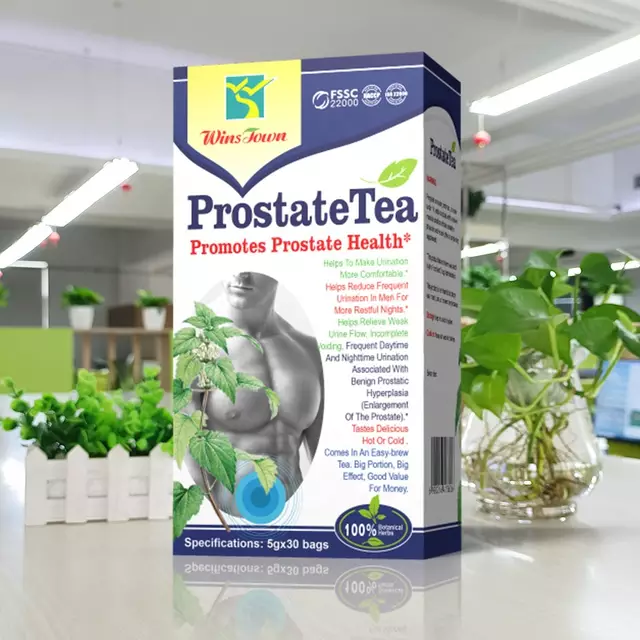
Many people believe that lemongrass tea offers multiple health benefits, like relieving anxiety, lowering blood pressure, and preventing infection. Indeed, scientists have reasons to believe it is a tea that men in their 40s and 50s should relish due to its potential benefits for benign prostate hyperplasia (BPH).
In a new study, research suggests that lemongrass (Cymbopogon citratus), particularly its aqueous extract, may offer a natural approach to managing BPH. It was in the Journal of Innovations in Medical Research.
According to the study “Phenolic compound contents and effect of aqueous extract of Cordyline fruticosa leaves on testosterone-induced benign prostatic hyperplasia in male Wistar rats,” lemongrass extract can improve prostate indices, decrease PSA levels, decrease prostate weight, and possibly lessen the structural alterations linked to BPH.
A reduced prostate weight and prostate index indicate a reduction in the size and enlargement of the prostate gland, a key characteristic of BPH. Lower testosterone and PSA levels suggest the extract can help regulate the hormonal imbalances associated with BPH.
Up to 50 per cent of men between ages 51 and 60 have BPH, and around 90 percent of men over age 80 live with the condition.
Because of the location of the prostate gland, when it enlarges, it can interfere with the ability to urinate properly. It tightens the urethra and puts pressure on the bladder, leading to complications such as leakage, a reduced ability to urinate, and a weak urine stream.
Over time, BPH can lead to incontinence, damage to the bladder and kidneys, urinary tract infections, and bladder stones. It’s these complications and symptoms that send many looking for treatment.
However, many men in the community turn to plant-based remedies because of the negative side effects of using conventional drugs for BPH on a regular basis. These side effects include erectile dysfunction, dizziness, a decrease in libido, an upper respiratory tract infection, and male infertility because of a decreased sperm count.
For the study, Dr G. G. Akunna at Benue State University, Makurdi, and his collaborators tested the effects of three different doses (low, moderate, and high) of lemongrass extract in adult rats made to develop BPH using testosterone in the laboratory.
They looked at various factors like prostate weight, prostate index, serum testosterone and PSA levels, and oxidative stress markers.
Doses of 200 mg/kg body weight and 400 mg/kg body weight of lemongrass water extract significantly reduced prostate weight in diseased rats.
According to them, lemon tea has a protective effect on testosterone-induced BPH in Wistar rats, thus supporting its further investigation as a potential agent for the treatment of prostatic and inflammatory diseases.
They also recommend that further investigations be carried out to understand how lemon tea protects against the BPH effect in higher animals and possible clinical trials on human beings for the treatment of BPH.
Previously, researchers stated that citral, the chemical substance present in lemongrass, may help lower blood pressure by widening blood vessels, improving blood flow, and promoting relaxation, thus making it beneficial for individuals with BPH who also experience high blood pressure.
In addition, lemongrass tea can act as a diuretic, increasing urination frequency and potentially helping to relieve urinary symptoms associated with BPH, such as frequent urination and nocturia (waking up at night to urinate).
High cholesterol can increase the risk of heart attack or stroke, and some studies suggest lemongrass may help regulate cholesterol levels, potentially reducing the risk of cardiovascular issues like stroke and heart attack.
Additionally, studies have shown that lemongrass has anticancer qualities and may improve the effectiveness of chemotherapy on prostate cancer cells. Furthermore, it belongs to a larger class of herbal remedies that are being investigated for their potential to treat many other urological disorders.
A 2020 study investigating the effects of lemongrass tea on rats with social defeat stress found that it significantly reduced anxiety and depressive-like symptoms. Of course, further research is necessary to understand if this applies to humans, too.
Similarly, a 2021 study that tested how well lemongrass can kill Candida albicans, a fungus that can cause infections, discovered that lemongrass oil at a concentration of 2.5 per cent was just as effective as an antifungal medication at killing Candida albicans on silicone surfaces.
In many countries where lemongrass plants are native to the area, people will chew on lemongrass stalks. They claim this improves dental health and keeps the mouth feeling clean.
For example, a 2023 study found that participants who used lemongrass oil mouthwash showed significantly lower levels of plaque and better gum health compared to participants who used a chlorhexidine mouthwash.
Although lemongrass tea’s anti-hypertensive and diuretic qualities may help BPH, moderation in lemongrass tea use is important for a healthy diet to benefit from its other medical and health advantages.
READ ALSO: Pineapple, bitter kola useful in treating prostate enlargement —Study
Provided by SyndiGate Media Inc. (Syndigate.info).
Post a Comment for "Lemon grass tea, good for men with prostate enlargements —Scientists"